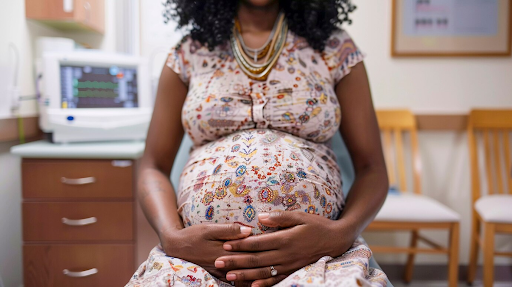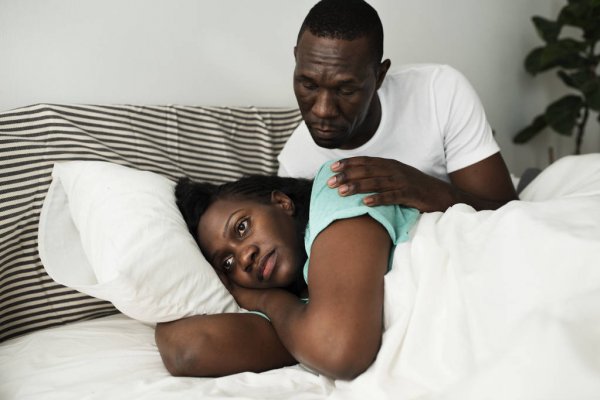When talking about fertility, age is more than just a number. Fertility changes with age. Age matters and one could say that age is the beginning and the end of fertility.
The rule is simple: the younger, the more fertile; older the less fertile. It’s as simple and straightforward as that.
For a woman, age is probably the single most important factor that affects fertility and chances of conceiving and having a child.
Both men and women become fertile in their teens following puberty. For girls, the beginning of fertility is marked by the onset of ovulation and menstruation (menarche) and for men by production of sperms. After menopause women are no longer fertile. Men have no definite cut-off for fertility like women.
One of the most common myths of conception is that women can have children at any age and that lots of women have babies in their 40s.
In today’s society, age-related infertility is becoming more common because, for variety of reasons, many women wait until their 30s to begin their families.
Even though women today are healthier and taking better care of themselves than ever before, improved health in later life does not offset the natural age-related decline in fertility.
Fertility does decrease naturally with age, but while the decline may not be steep enough to keep the vast majority of women in their late 30s from having a child, it is necessary to keep in mind that several women in their 30s and above would require assistance to conceive.
A woman’s eggs are as old as she is because women are born with all the eggs they will ever have and that number decreases every month. So as a woman ages, her eggs age with her, diminishing in quantity and quality. Diminished fertility, also called diminished ovarian reserve, often reflects a decrease in number and quality of eggs.
Also, a woman’s ovarian reserve depends not only on the quantity but also the quality of the eggs in her ovaries, as well as the quality of the response of ovarian follicles to hormone signals from the brain.
With age, it takes longer for a woman to conceive and the risk of not being able to get pregnant increases, miscarriage, and complications in pregnancy and childbirth, also increase.
Women’s fertility runs in cycles, unlike that of men.
As a woman ages, her fertility decreases. This decrease usually occurs slowly up until about 35 years of age, when fertility falls even faster. Chances of getting pregnant diminish gradually but significantly from about the age of 32. From age 35, fertility decline speeds up and by 40, fertility has reduced by half.
At 30, the chance of conceiving each month is about 20 percent. At 40 it’s around 5 percent.
Pregnancy and birth complications, as well as the chances of Caesarean Section births for older mothers, are also more significant.
Older women are more likely to have a baby with birth defects or genetic abnormalities.
A woman that is over 35 is nearly 2.5 times more likely than a younger woman to have a stillbirth. By age 40, she is more than five times more likely to have a stillbirth than a woman under 35. For a woman aged 40 and above, the risk of miscarriage is greater than the chance of a live birth.
The drop in fertility is seen even in women with perfectly normal, regular menstrual cycles. For some women, fertility may no longer be possible 5 to 10 years before menopause.
As the woman ages, a natural loss of eggs occurs as well as a decrease in the quality of those eggs. The average age of menopause is roughly from the late 40s to early 50s, by then, ovaries stop functioning and there are few or no eggs left.
In the few years preceding menopause, the body produces more FSH (follicle-stimulating hormone) and LH (luteinizing hormone) due to a decrease in response of the ovaries to these hormones. Menstrual cycles become shorter and eventually stop altogether.
Factors that can also cause a decrease in the lifespan of the ovaries, making fertility after 40 even more difficult, include smoking cigarettes, chemotherapy or radiation from cancer treatment and diseases of the ovaries.
Several blood and imaging tests are available to determine the quantity and quality of a woman’s eggs. These tests are performed on specific days of the menstrual cycle and include blood tests to determine levels of different hormones. An ultrasound can also be performed to measure the ovary size and number of follicles.
For a man, age can also impact on chance of conception, time to pregnancy, risk of miscarriage and the health of the child. A man’s age can reduce the chance of fathering a healthy child. For instance, children with fathers aged 40 or older are more than five times as likely to have an autism spectrum disorder than children fathered by men aged under 30.
While a man can have a child at any age, male fertility starts to decline after 40 when sperm quality decreases. This means it takes longer for the man’s partner to conceive and there’s also an increased risk of not conceiving at all. If conception occurs, there’s an increased risk of miscarriage regardless of the age of the mother if the father is over 45.
The average time to pregnancy if a man is under 25 is just over 4.5 months but nearly two years if a man is over 40 (if the woman is under 25). There is a five-fold increase in time to pregnancy if the male partner is aged over 45 years.
For couples having IVF, the risk of not having a baby is more than five times higher if the male partner is above 40. The volume of semen and sperm motility (the ability of sperm to move towards an egg) decreases continually between as from the 40s.
It is also known that the risk of miscarriage is twice as high for women whose male partner is aged over 45 than for those whose partners are under 25.
The take-home from all this is that age is beyond our control, but we can control the decision sooner rather than later about whether we want a baby or another baby, or to be in a relationship. One way to try to overcome the effects of aging on fertility is through the use of assisted fertility treatments such as In Vitro Fertilization (IVF) or third party reproduction such as egg or embryo donation.
However if we are not going to start raising a family at the optimal age, elective egg freezing might be an option to consider.





